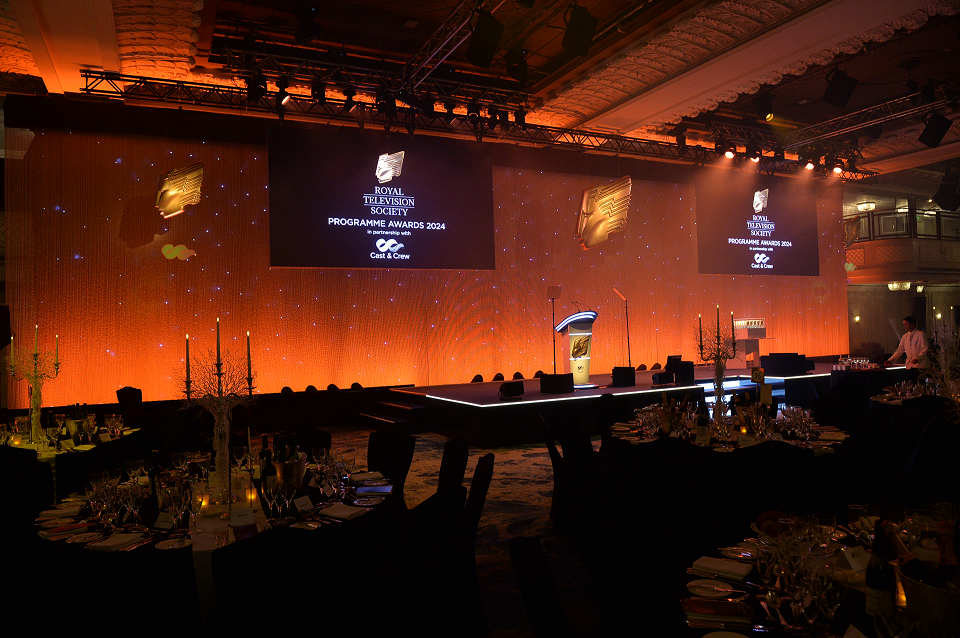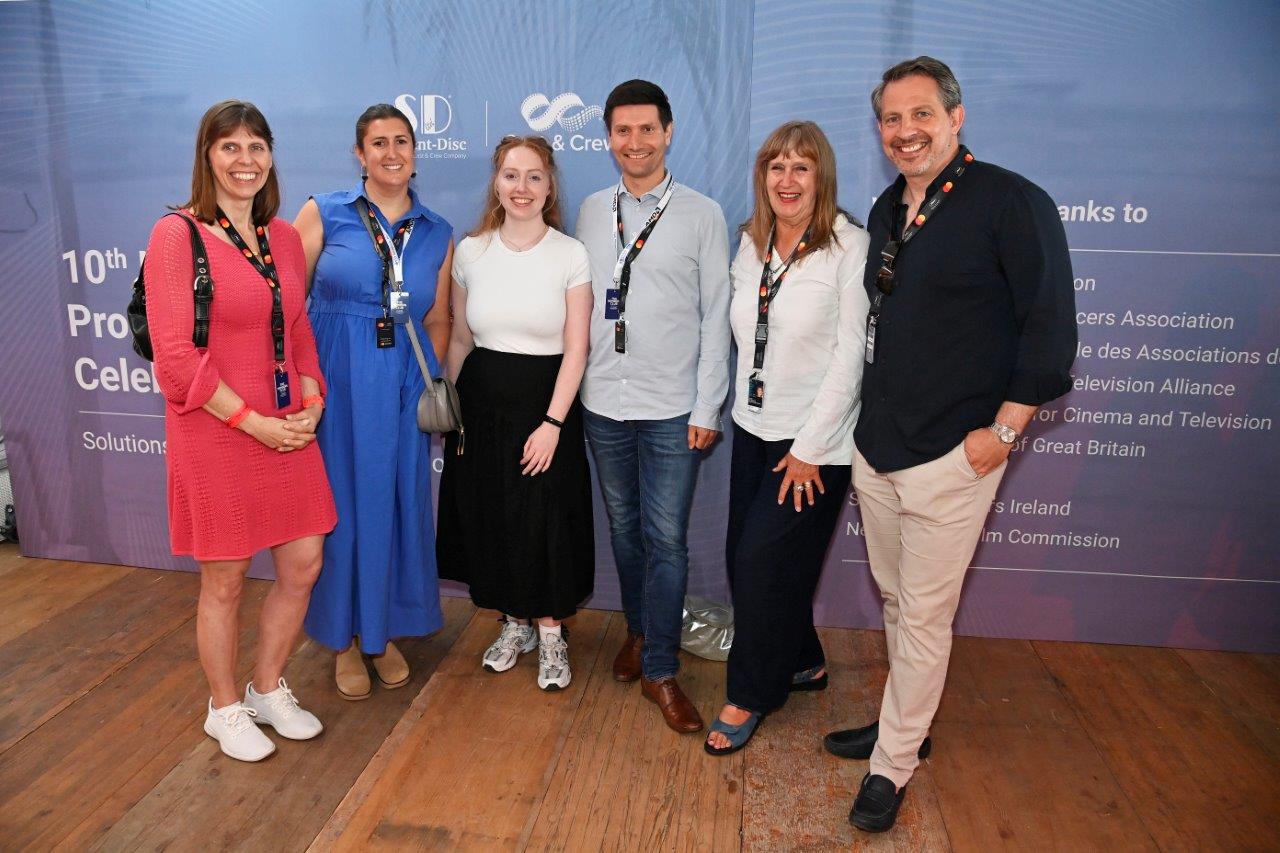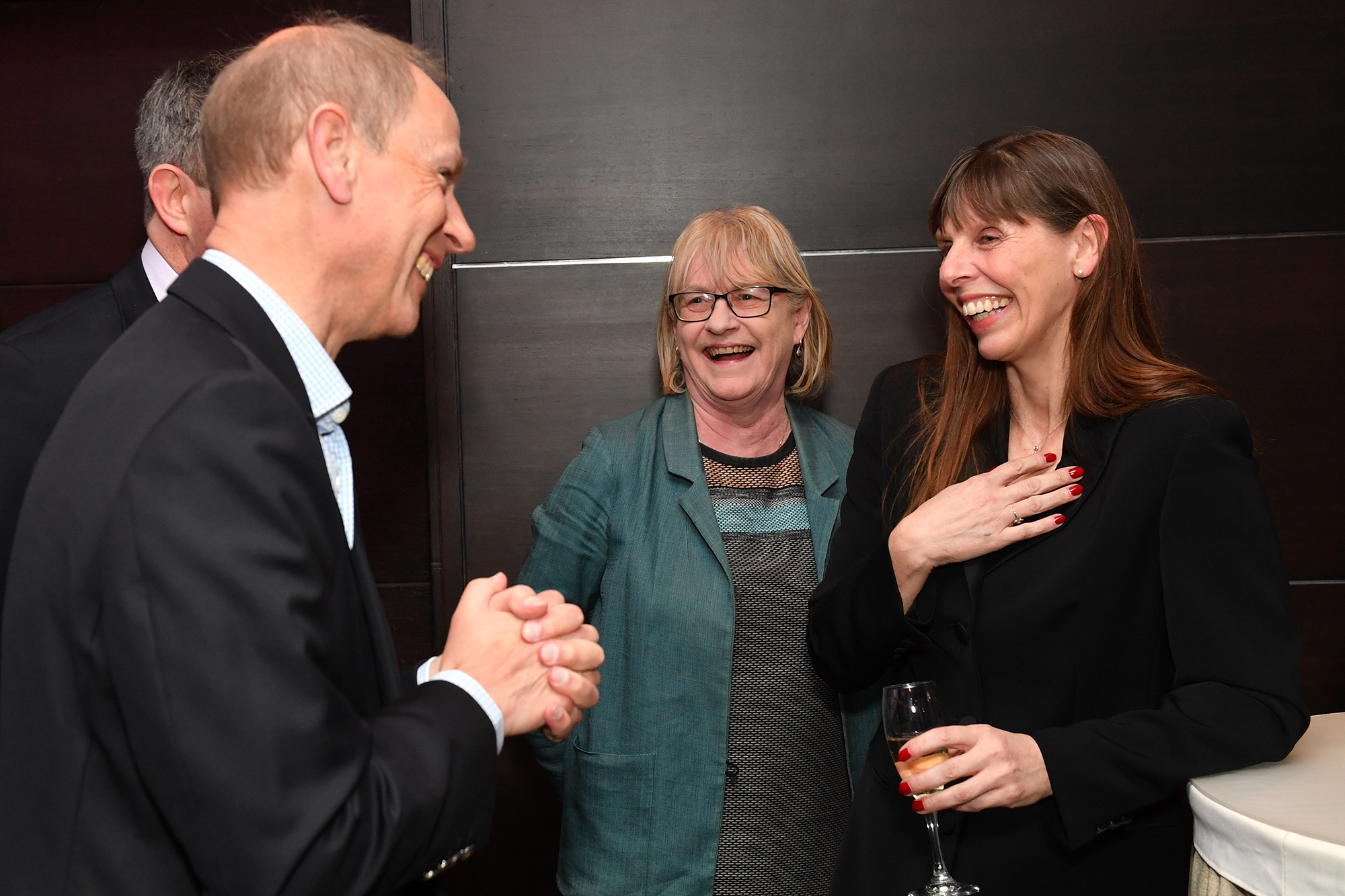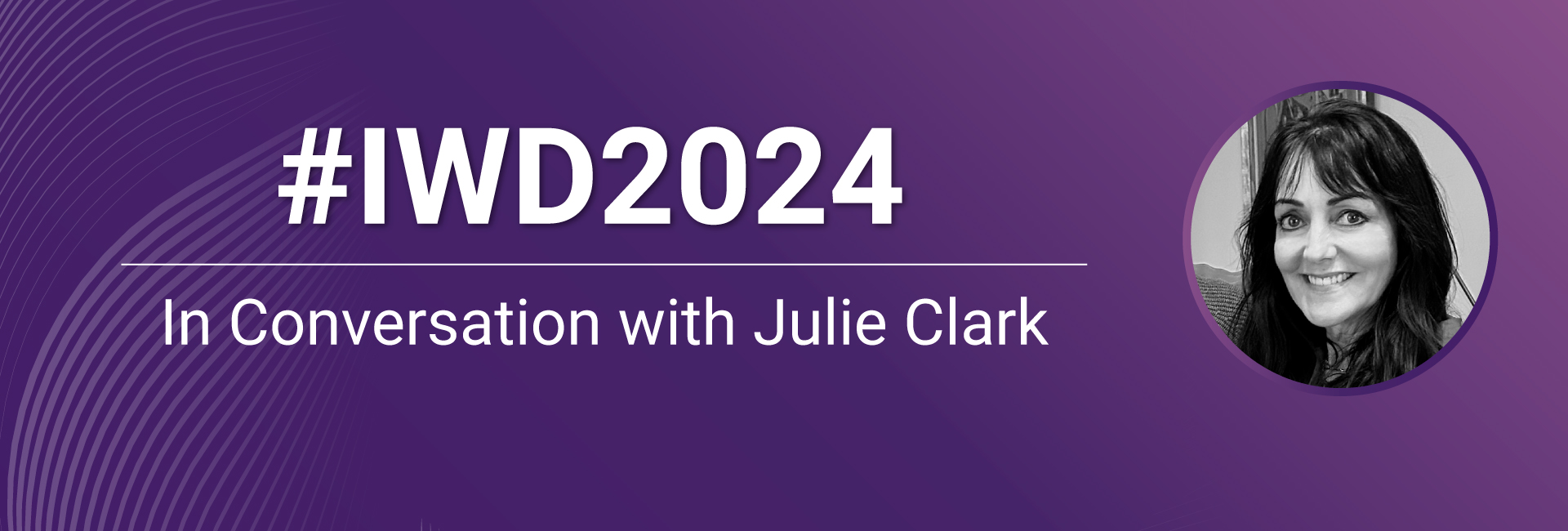
Sargent-Disc celebrated International Women’s Day on Tuesday 5th March, with an inspiring ‘In Conversation’ event with Julie Clark, ITV Studios’ Director of Production (Drama).
Introduced by Director Lara Sargent, Julie recounted the path she took into film and TV, from her Drama Media course at Leeds, to moving to London and finding her first job as a Receptionist in a Soho post-production company. From there she stepped into freelance production, starting out in corporate, progressing to documentaries, then drama-docs and finally into the more complicated world of HETV drama. Moving from the role of production manager to line producer and producer, throughout her freelancer career Julie gained credits on numerous award-winning dramas and feature films.
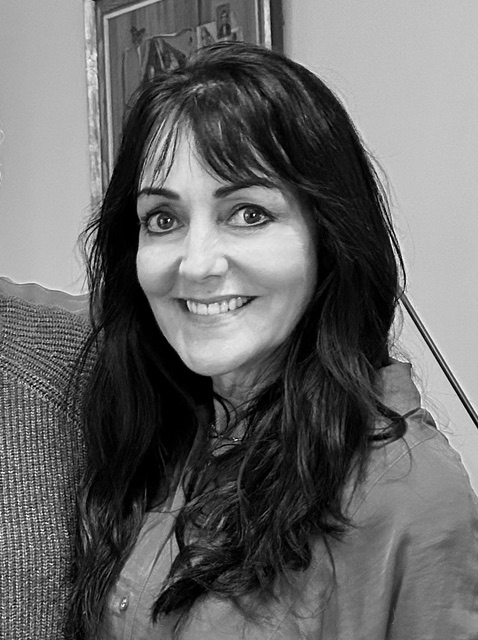
After a period as Production Consultant for the BBC In-House Drama working across titles including Luther, Our Girl and Silent Witness, Julie became Senior Production Executive at Left Bank Pictures where she worked on Outlander (Starz), Electric Dreams (Channel 4/Amazon), The Replacement (BBC One) and The Halcyon (ITV). Yet the biggest step of her career she describes as moving into her first staff job, offered to her by Executive Producer Sue Hogg whom she’d worked alongside as a production exec at the BBC.
Sue had just set up the drama department at Studio Lambert, and needed someone with years of production knowledge and connections to help expand so she invited Julie to be her Head of Production. Sue invited Julie to help grow it, eventually making Julie her ‘right-hand woman’. Julie went on to lead production on titles such as The Feed (Amazon Prime Video), The Nest and Three Families (BBC One) before joining ITV Studios as Director of Production (Drama) in 2022. Today she oversees eight drama labels, including Happy Prince, Jeff Pope’s Factual Drama, Patrick Spence, Poison Pen, 5 Acts, Tall Story Pictures, Silverprint Pictures and Quay Street Productions.
On the topic of discrimination she has experienced as a woman in a leadership role, Julie described the challenges of balancing home and work life during her time as a line producer 10-15 years ago whilst her two kids were young. At the time, she explained, the male-orientated nature of the industry meant it was easier to keep details of your home life quiet, in case you were seen as someone who may have to leave early, leading to you being discriminated against when going for your next job.
Recounting those fast-paced freelance days moving from title to title, Julie recalled being inspired by women she encountered around her, giving one particular example of a conversation she had with Helena Bonham Carter. “She was juggling two kids who were a similar age to mine,” said Julie. “Whilst reading in character at a script read-through, she was also texting her nanny, making notes & looking for headache tablets! We chatted afterwards and I said, ‘I don’t know how you do this,’ and she said, ‘You just do it, day by day.’ I guess a little bit of that has stayed with me.”
Julie also recalled having to deal with difficult situations, like asking overtime of some of the more ‘macho’ crew members who would give her a hard time and respond disrespectfully. She explained about having to find the confidence and resilience to stand up against them and say, “Please, we’re asking this on behalf of the production,” and not take it personally. Early on, she decided that authenticity and transparency was the best approach, saying that she always prefers talking to people face to face rather than writing or even having virtual calls since they have become more commonplace.
“Anybody who’s got kids and a demanding career is always going to feel guilt,” she said. “When you’re home, you feel guilty you’re not working hard enough. When you’re at work, you feel guilty you’re not spending enough time with your kids. It’s much easier now because people are more open. The industry is starting to encourage smart working and emboldening people to be honest about their home lives. We’re putting well-being at the forefront of conversations. There has been a massive shift, I think, since the days I was line-producing.”
Asked about the biggest changes she has seen throughout her career, Julie talked about the shift in attitudes to work safety both in front and behind the camera. “Today, it’s just as much about trust within a crew and speaking up when things don’t feel right. That would never have been talked about even five years ago. I was recently doing the Mark Milson Foundation course and one of the takeaways I got was that the producer’s most important role on set is the well-being of the crew. That’s encouraging.”
Reflecting on her proudest achievements to date, Julie talked about being an active member of the Creative Access scheme that she joined when she started at ITV Studios. Taking on a mentee from a small village in Doncaster who was a keen photographer but knew nothing about the industry, Julie helped her hone her CV, gave her some connections and helped her grow over the months. She arranged a day of shadowing for her with Emmerdale’s camera team.
“She was so engaged that they gave her the job of making the tea and running for the camera equipment,” she said. “They asked her back for a second day, then a third. After a week, they offered her a trainee grip position. You don’t get female grips, ever. She took that role and has been flying ever since. I feel so proud of her, and of Emmerdale for giving her that opportunity. I think giving people from disadvantaged backgrounds a chance, opening a door for them – not pushing them through, just opening it so they can go through themselves – is really important.”
Julie also talked about a sense of pride in having recruited the industry’s first in house Access Coordinator. AC’s have been employed on an ad hoc basis for various productions, but only when there was a clear DDN cast or crew member employed. Now, ITV actively encourage DDN people to come and work with them, both in front or behind the camera, and it has made a huge difference in terms of inclusivity for crewing up and casting. “I’m hoping the approach will spread out into the industry a little more,” she said. “We’ve also been encouraging time sharing, job shares, trying to build flexi working into our day-to-day work.”
Closing the session, Lara asked Julie whether she ever expected Mr Bates vs. The Post Office to have so much influence on the Post Office scandal? Julie talked about the challenges that the show presented in terms of the budget; for example, the fact that the Submasters were scattered all over the country, and writer Gwyneth Jones and director James Strong were keen to shoot in each of those actual places. “We had to come to some compromises because we couldn’t afford all of it, but I’m proud that our teams here saw it through and that the show has made a difference. We had no idea it was going to hit like it did when we first got the script from Gwyneth. I think Toby Jones’s portrayal of Alan Bates was extraordinary, and the other cast were remarkable too. It has really resonated with the public and has created an impact that we could never have imagined.”

